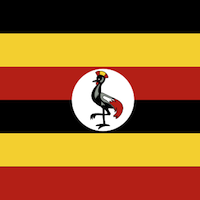 Despite President Obama’s strong condemnation of the recent anti-gay law in Uganda, the United States has decided anyway to once again substantially ramp up its military assistance to the country — including sending 150 more troops — in their efforts to track down and neutralize the Uganda-originated regional threat of the LRA rebel organization, which has fled to (and destabilized) other nearby countries.
Despite President Obama’s strong condemnation of the recent anti-gay law in Uganda, the United States has decided anyway to once again substantially ramp up its military assistance to the country — including sending 150 more troops — in their efforts to track down and neutralize the Uganda-originated regional threat of the LRA rebel organization, which has fled to (and destabilized) other nearby countries.
From the New York Times yesterday:
President Obama is sending more troops and military aircraft to Uganda as part of a long-running effort to hunt down Joseph Kony, the fugitive rebel commander who is believed to have been hiding in the jungles of central Africa for years, a Defense Department official said on Sunday.
The president is sending several CV-22 Osprey aircraft, along with 150 Air Force Special Operations forces and other airmen, to join the American troops already in the region to help the Ugandan government find Mr. Kony.
The escalation, first reported on Sunday by The Washington Post, does not change the nature of the United States’ military presence on the ground in central Africa. American forces will continue to advise and assist their counterparts in the African Union’s military task force tracking Mr. Kony and his Lord’s Resistance Army across Uganda, Central African Republic, South Sudan and the Democratic Republic of Congo. The Americans are forbidden to fight the L.R.A. themselves except in self-defense.
This continues a lengthening partnership started by President George W. Bush and significantly increased several times by President Obama. Here’s an excerpt from a previous post I wrote on the subject back in April 2010, after an 18-month military campaign across the region that cut the LRA’s size in half:
Uganda’s government, armed and assisted by the United States with “millions of dollars of military support, namely, trucks, fuel and contracted airplanes,” is hunting down the transnational Lord’s Resistance Army […]
You’ll notice it’s essentially the same as the beginning of this post, except the mission was somewhat smaller before, and that was four years ago.
One wonders how much of the purported accomplishments of these missions is greatly exaggerated. In that time, the LRA has doubtless kidnapped many fresh child soldiers to re-bolster his ranks. Kony himself remains nowhere to be found, with only rumors of his location pinpointed by the swathes of genocidal rampages that follow in his path as he throws matches into post-colonial tinderboxes of ethnic and religious tensions. He’s bad. But is this the right approach to end the threat?
Observers have previously tied specific U.S.-supported operations against Kony to his revenge-based slaughters of totally random, uninvolved villages in the region. These attacks are meant to “punish” Uganda and the United States for its actions. For example:
In December 2008 [under George W. Bush], Africom, the American military command for Africa, helped plan an attack on Mr. Kony’s camp in Congo. But Mr. Kony, having apparently been tipped off, escaped before the Ugandan helicopter gunships even took off. His army is believed to have killed hundreds of nearby villagers in revenge, leaving behind scorched huts.
And I thought we were going to pull back on this aid, in light of the anti-gay law — not increase it. Just last month President Obama was threatening to pull the plug:
Obama suggested that the Ugandan president — a key regional ally for both the United States and the European Union — risks damaging his country’s ties with Washington if he signs the bill into law.
“As we have conveyed to President Museveni, enacting this legislation will complicate our valued relationship with Uganda,” Obama said.
Guess that was a bluff? I find it all very distasteful.
Helpful reminder from The Globalist Research Center (where I work) as to whom this military assistance is going — beyond even the gay persecution concerns:
With the ousting of Egypt’s Hosni Mubarak and Libya’s Muammar Gaddafi in the Arab Spring revolts of 2011, Uganda’s Yoweri Museveni is now Africa’s fifth-longest-serving national leader. Mubarak and Gaddafi had been in office for 29 and 42 years, respectively, at the time of their ouster.
Sworn in as president on January 29, 1986, Museveni has held the post for almost 28 years so far. He was once hailed by Western governments as a champion of equality and democracy — and rewarded with generous aid as a result. However, Museveni’s long tenure has led to an erosion of Ugandan democracy.
Will Central Africa’s problems really be solved by bringing more troops and helicopter gunships to a dictator who has held office for nearly three decades?


